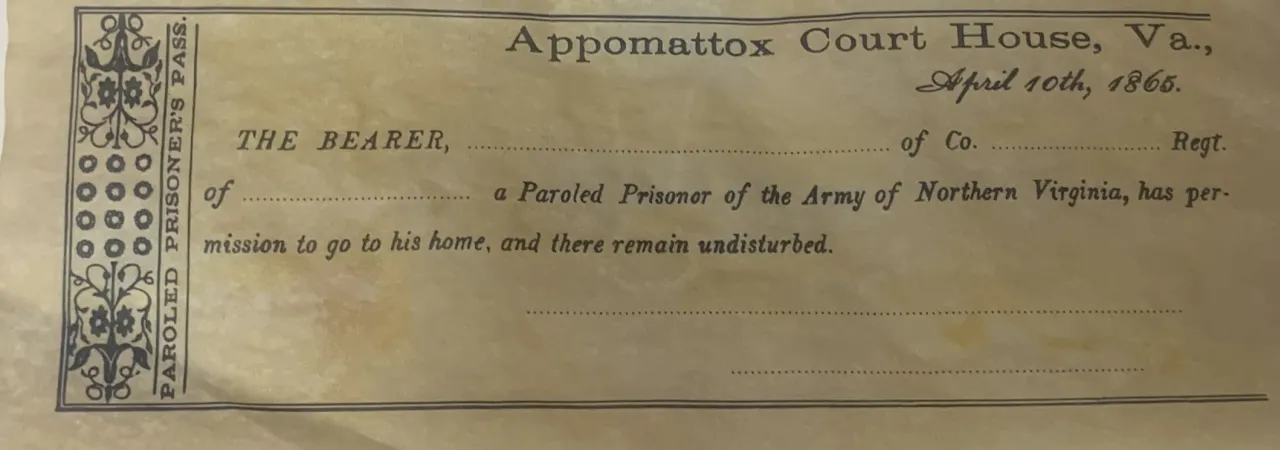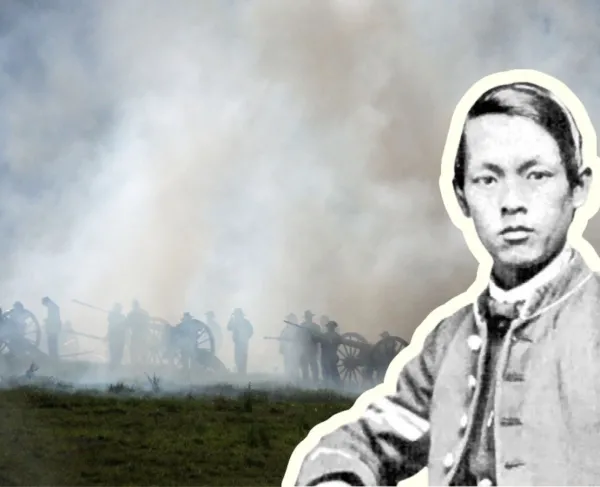
Appomattox Court House, Va.,
THE BEARER,_______________________ of Co.____________ Regt.___ 0f________, a paroled Prisoner of the Army of Northern Virginia, has permission to go to his Home, and there remain undisturbed.
In April 1865, Robert E. Lee’s troops retreated west from Richmond and Petersburg, Virginia to avoid capture by Union forces. Along the way, Lee’s troops were involved in damaging battles, including Five Forks and Sailor’s Creek. The now-wounded and hungry army marched their way towards Appomattox Station to resupply and reorganize the fleeing army. Union troops destroyed the railroad and supply cars at High Bridge, and when Lee’s army reached Appomattox Station, there were no supplies or food to be found.
Surrounded by Union troops led by General Ulysses S. Grant, Lee surrendered on April 9, 1865 at Appomattox Court House, signaling an ending the American Civil War in Virginia. The terms of surrender were agreed upon with the goal of healing the United States. The surrender terms allowed Confederate officers to keep their horses and soldiers to return home without repercussion. All Confederate soldiers were required to leave their weapons to the Union and were given access to rations and a ticket to use any federally owned train or ship to go home. Lee wanted to ensure the Confederate soldiers had a way of identifying themselves as surrendered soldiers if stopped along their way home. Grant agreed to establish a printing press in the town’s tavern to print parole passes.
A parole pass was a small rectangle paper that stated the Confederate soldier of the Army of Northern Virginia had permission to go home and remain undisturbed. At the local tavern, soldiers printed 30,000 parole passes starting on April 10, 1865. Once the Confederate soldiers received their passes, they could go home or where they pleased. Although many returned home to see their families for the first time in years, many used the pass to visit new locations and start new lives. Some people in the North view the surrender terms and parole pass as too lenient. It was the goal of President Abraham Lincoln to unify the United States, and harsh terms would only push the southern states further away from unity.
We have a chance to save these critical pieces of history at Gaines' Mill, Cold Harbor, and Appomattox Court House for just a fraction of their full...
Related Battles
152
500





